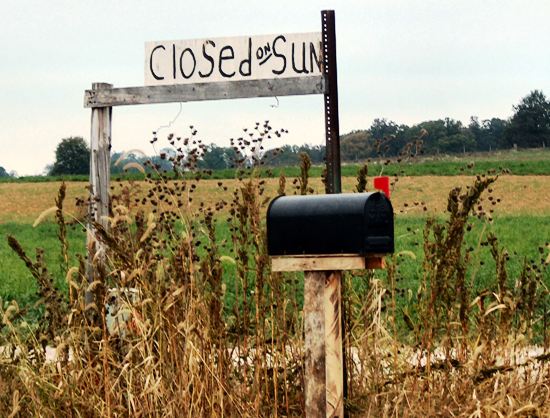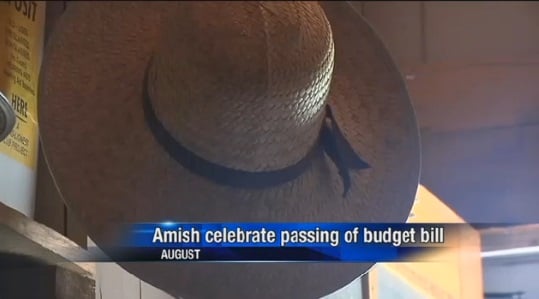Indiana Amish vindicated: ‘Daylight savings’ actually sucking savings out of Hoosier pockets
A couple of years back I wrote on Amish and daylight savings time.
I cited an informal survey I’d done among northern Indiana Amish unhappy with the state’s forced change to DST in 2006. Previously only a few counties had followed it.
Among their reasons for being anti-DST, Amish have pointed to tradition and the extra hour of summer sunlight (translated: an extra hour to be outside working and for children to be running around) as tiring.
Turns out there are economic negatives as well.
The Wall Street Journal ran an article a while back titled ‘Daylight Saving Wastes Energy, Study Says’ on research showing that the Indiana change has cost households $8.6 million in increased electric bills.
One big reason is the greater use of air-conditioning, less common when DST studies were performed three decades ago.
Coming home earlier from work means cooling the house for an extra hour. It may also mean heating it during the cooler morning period.
Though the study seems to prove the case pretty solidly, some caution against applying it to all states and regions, as local factors such as climate may vary.
Interestingly, it seems this isn’t the only time issue for Indiana. The article closes by noting that ‘a separate debate over whether the state should be on Central or Eastern Time rages on.’ Time zones matter more than we might think!
(Oh yeah–and if you haven’t changed your clock yet today…)
Plus: Donald Kraybill on DST and four Ohio Amish affiliations






I had not heard that before. Very interesting. Thank you for sharing all about Daylight Savings.
Blessings,
Gina
Thanks Gina, very kind of you!
It appears the Indiana Amish are true Hoosiers, who have their own ideas about time zones. Until recently Indiana people have been quite nonconforming. Three years ago in Pulaski my wife noted that some business places in town had two clocks — the city fathers couldn’t agree on which summer time system to adopt, so people used both. It’s good to see that there is some resistance to standardizing and MacDonaldizing the whole world.
I don’t quite understand, since if you work with the sun, it doesn’t really matter WHAT the clock says….the hours in summer are longer if you live anywhere but the equator. Sort of like the dairy farmers who say it messes with the cows…lactation adapts, and farmers could always milk at the same global time regardless of the clock time. Baffles me.
Amish factory workers AM shift
Good question Dawn, the majority of the N. Indiana Amish in question are not farmers but rather factory workers and typically get up around 3 am to work a shift until maybe early afternoon. Daylight savings or not, they are up before the dawn just by virtue of the typical factory schedule.
So the days essentially last an hour longer for them–they get home and the tendency is to stay up until the sun sets, ie due to the kids being up and a natural inclination to use whatever hours of daylight you have productively outside.